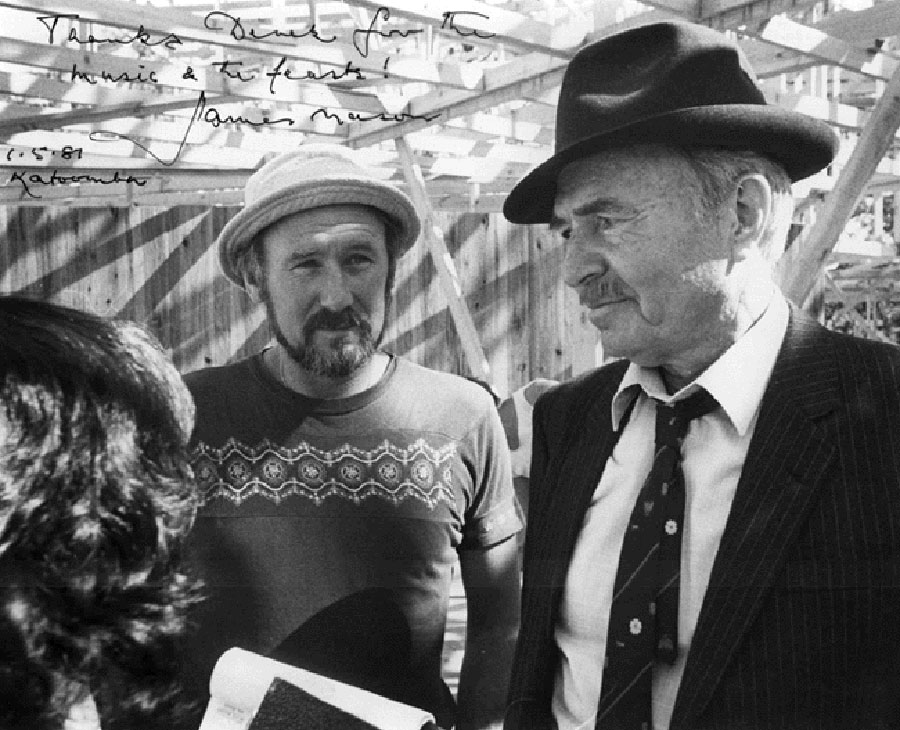The word serf comes from the Latin word "servum", meaning a slave. Serfdom, in feudal times, was a condition of partial slavery. The serf was not owned by his overlord, but the land which he worked was. It was the property of his overlord. In film the overlord is the producer. Creative talent has always been regarded by producers as an unfortunately necessary evil and the requirement to cede copyright may actually, be a device to rid the producer of a nuisance, namely the writer, before commencing production. Otherwise, why not welcome the writer onto the production team as consultant and co-beneficiary in the film's profits?
There are two reasons why not:
1) The producer, for obvious reasons, would prefer not to share the producer's percentage. The director is already dealt a share. Why include the writer? All that he/she should be allowed is a one-off payment for writing the script. Forget rights of any kind, or forget the job. We all know how hard it is for a writer, having ceded copyright, to then negotiate a percentage of beneficial ownership of the film, and, having negotiated, actually get paid what is due! If writers are treated like this, what hope does a composer have of striking a better deal?!
2) Neither the producer nor the director wishes to share power or authority on the film set, and the last person they want hovering around during production is an importunate writer objecting to changes. This reason has to do with power psychosis and it is probably the principal reason why producers and directors very strongly object to the possibility of a writer being given moral rights in a film. Again, the precedent set by treatment of the writer applies equally to the composer, particularly as the composer is usually employed as an afterthought after the film is completed!
A fact of life about the nature of film production, as it has evolved, is that, in structure a film production is essentially fascist, or, if you like, feudal:- fascism being a survival of feudalism in this century - that is, a politico-economic structure dominated by one individual who has absolute authority and whose word is law, and whose regime is enforced by a loyal private army. If anyone doubts that this is so, let me regale you with a true story, which perfectly illustrates that thesis:
As a composer I am, from time to time, given employment as an actor, and sometimes as a surrogate actor. This was the case when, in 1981, I was engaged as a stand-in for the late James Mason during shooting of a film set in the Blue Mountains (a distant suburb of Sydney, well known for its exquisite bush and mountain scenery). The director had a tenuous command of logistics, such that extras and volunteer firemen narrowly escaped being run over by rampaging fire trucks during photography of scenes depicting the result of arson. (The same director improved on his track record by, in his next film, having a camera assistant actually run over and killed by an out of control car driven by a teenager during filming of a race sequence).
The pleasure of watching Mason at work was offset by the tedium of many hours of hanging around. Tiring of sitting on upturned logs or upturned cartons I purchased a fold-up chair at Woolworths for $13, and used this to sit on. Alas, I had forgotten that, on a film set, a fold-up chair is a potent symbol of royalty, being known in this microcosmic kingdom, as a "director's chair." I had unwittingly committed treason. Word of my sin got back to the monarch, and very soon I received a visit from the first assistant director who said: "We're a bit short of chairs on this production. Can we buy yours from you?" It was, of course, a de facto confiscation. I, a mere serf, had arrogated to myself the right to sit on the sacred symbol of royalty, the throne!
Where there is a feudal lord, you would expect to find serfs. The true serfs in the film world are not the film crew, who are artisans being paid to do a job, and who don't regard the film as being in any way their property. The true serfs are the writer and composer who, under common law, begin by owning their own work, a product now defined in law as intellectual property! It only remains the creator‘s property if the creator becomes a producer, or co-producer.
